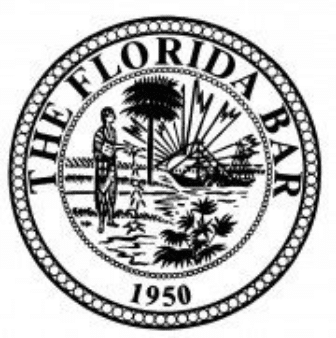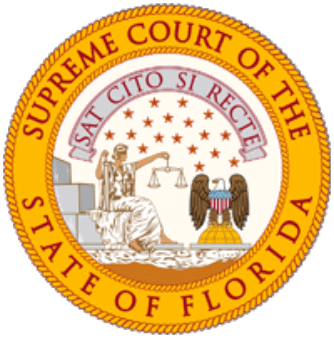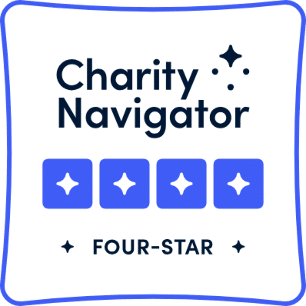by Gabrielle Davis
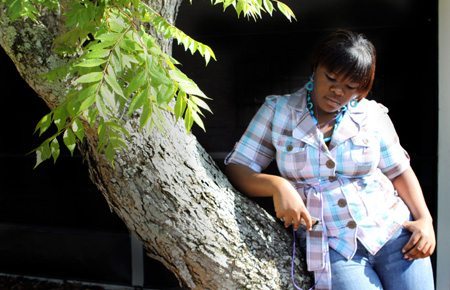
At the age of 17, Kamesha Grant made the hardest decision a former foster child could make: to re-enter the foster care system. What could have been a tragedy is turning into a triumph because of help from a Children’s Legal Services advocate.
“[My advocate] has done nothing but dedicate herself and her time to me,” Kamesha said. “She kept me positive. She kept me focused.”
Kamesha’s story is an example of how access to the legal system can make a life-changing difference, a difference that every lawyer in Florida has the power to make.
On the 2010-11 Florida Bar fee statement, lawyers can help meet the legal needs of thousands of disadvantaged children like Kamesha by donating to the Lawyers’ Challenge for Children.
Florida Bar President-elect Mayanne Downs asks every Bar member to make a voluntary contribution of at least $45 to the Lawyers’ Challenge for Children. All funds raised go directly to The Florida Bar Foundation’s Children’s Legal Services Grant Program to address the special legal needs of children, including those with learning disabilities, children aging out of foster care, and abused and neglected kids. No administrative expenses are deducted.
“The need for legal advocacy on behalf of Florida’s low-income children is increasing all the time,” Downs said. “As lawyers, we have a unique opportunity and responsibility to make an impact on these children’s lives. Please join me in supporting this important cause.”
Kamesha’s story
Kamesha was just a toddler when she entered the dependency system. Life in foster care was all she knew until age 9, when she moved in with her great-aunt, who provided discipline and stability. When her great-aunt died suddenly four years later, she was left with her great-uncle.
At the same time, Kamesha was beginning to show signs of bipolar disorder, which led to bad grades, school fights and a failed suicide attempt.
At 17, Kamesha resolved to re-enter foster care against her family’s wishes.
“It was difficult to do,” Kamesha said. “I was going through a huge emotional roller coaster at the time.”
Her saving grace was her poetry. She often reflects on one poem in particular called “Lullaby” about her relationship with her mother.
“Every time I was mad at my mother, like any foster child would be. That poem helped me to realize that I can’t be mad at her. If it wasn’’t for her decisions I wouldn’t be where I am today.”
With her dependency case reopened, a judge ordered her into a group foster home in St. Cloud. The judge’s ruling would be a small victory in an uphill battle for Kamesha, who would soon be turning 18, the age at which the foster care system essentially cuts children loose.
Kamesha was paired with Guardian ad Litem attorney Bethanie Barber of the Legal Aid Society of the Orange County Bar Association, which received $138,020 in 2009 through the Foundation’s Children’s Legal Services Grant Program to provide advocacy to meet the special legal needs of area youth.
Statistics show that when kids like Kamesha don’t have an advocate to provide support and legal guidance to help transition them into adulthood, many age out of the foster care system only to face homelessness and unemployment.
“There are a number of documents you need to be successful, including a birth certificate, a state ID, social security card,” Barber said. “Without them, it’s almost impossible to gain employment.”
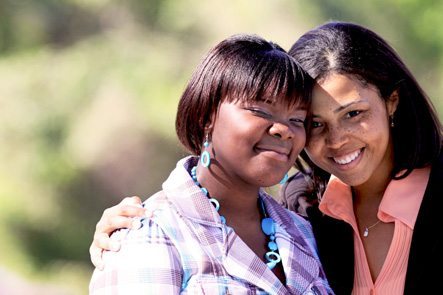
With proper documents, Kamesha left the group home and moved into a transitional facility for foster youth.
Constant shuffling between schools had put Kamesha behind, so she and Barber worked together on an education plan to get Kamesha back on track to graduate with her classmates.
“She’s really a responsible child,” Barber said. “She identified what her problems were and then asked what she could do to fix them.”
Barber also fought for Kamesha to receive mental health treatment required by law.
Kamesha also qualified for the Road to Independence benefit package through the Department of Children and Families, which gives former foster children financial help along with life skills training to become successful adults, so long as they are enrolled in a full-time education program.
“Now I’m just like everyone else. I’m an adult now,” Kamesha said. “Before I was a child, and I trusted other people to do the thinking for me and decide what was best for me.”
Kamesha said she wouldn’t have gotten far without the help of a legal advocate.
“Ms. Bethanie has helped me tremendously,” she said. “If it wasn’t for her dedication and her loyalty, I probably wouldn’t be graduating this year. I wouldn’t have proper medication and treatment because of my bipolar disorder. I’d still be lost today.”
